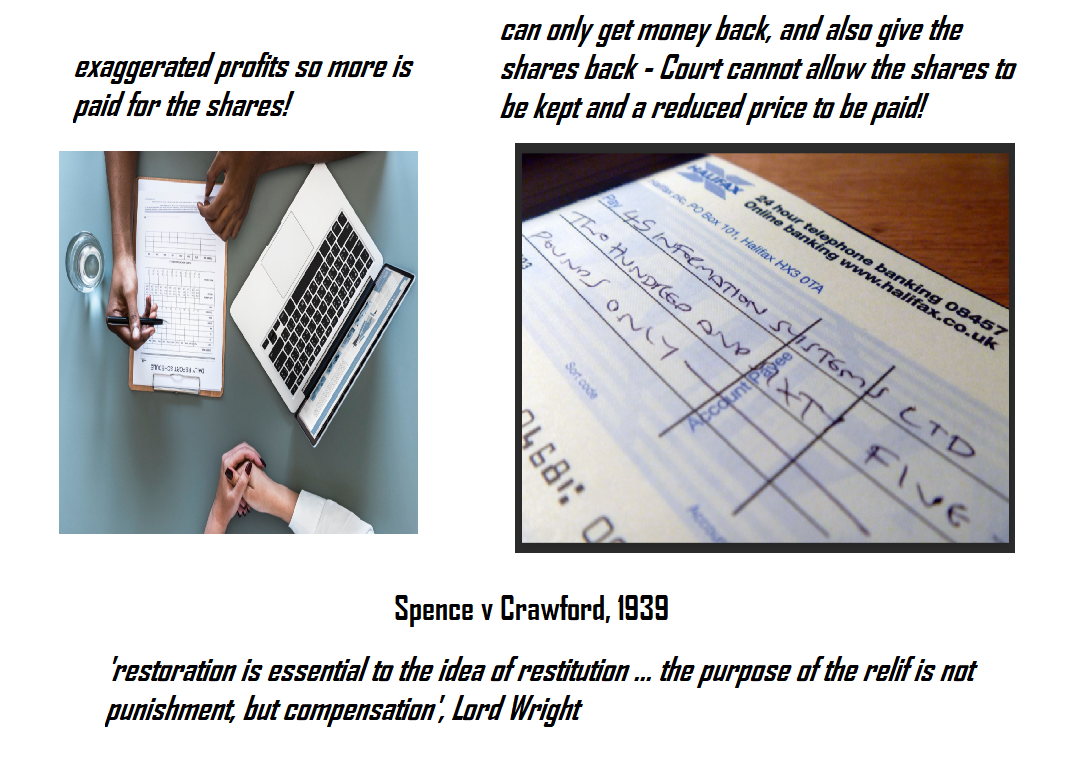Spence v Crawford, [1939] 3 All ER 271, [1939] SC (HL) 52
Citation:Spence v Crawford, [1939] 3 All ER 271, [1939] SC (HL) 52
Rule of thumb: .
Background facts:
The basic facts of this case were that Spence and Crawford were both shareholders in a metals company. Mr Crawford fraudulently falsified accounts and used these false accounts to prepare an offer to Mr Spence to buy his shares. On the basis of looking at the false accounts, Mr Spence thought he was getting a fair price for the shares and bought them from Crawford. When Spence discovered the false account he had been presented with, he sought to have the proper amount paid for his shares and get money from Crawford. Crawford refused to pay Spence the money that he was looking for, so the matter went to Court.
Parties argued:
Spence argued that Crawford made a fraudulent misrepresentation to him and he wanted full and proper payment for the shares meaning Crawford owed him money for the excessive amount paid for the shares. Crawford argued that he would just take the shares back and he would give Spence his money back.
Judgment:
The Court held that Spence could not get the extra money he was looking for - under the principle of misrepresentation the contract has to be reduced and damages sought. The Court ordered that Crawford be given his shares back and Spence given his money back with 4% interest per annum paid upon this. It is not known if Crawford and Spence went back into the metals business together or if some sort of deal outside Court was worked out by them.

Ratio-decidendi:
'… restoration is essential to the idea of restitution. To take the simplest case, if a plaintiff who has been defrauded seeks to have the contract annulled and his money or property restored to him, it would be inequitable if he did not also restore what he had got under the contract from the defendant. Though the defendant has been fraudulent, he must not be robbed nor must the plaintiff be unjustly enriched, as he would be if he both got back what he had parted with and kept what he had received in return. The purpose of the relief is not punishment, but compensation.” Lord Wright at 77
'restoration is essential to the idea of restitution ... the purpose of the relief is not punishment, but compensation', Lord Wright
Warning: This is not professional legal advice. This is not professional legal education advice. Please obtain professional guidance before embarking on any legal course of action. This is just an interpretation of a Judgment by persons of legal insight & varying levels of legal specialism, experience & expertise. Please read the Judgment yourself and form your own interpretation of it with professional assistance.

